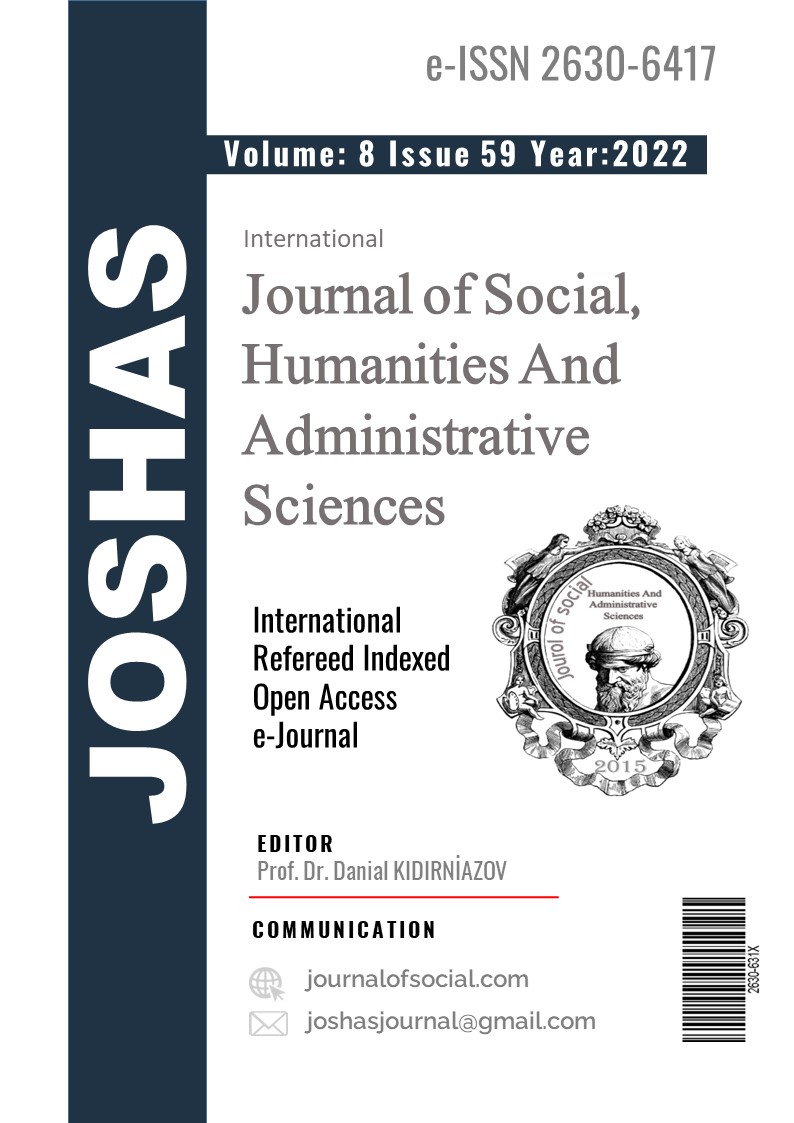Pandemi Sürecinde Okul Öncesi Dönem Çocuklarının Ebeveynlerinin Duygu Sosyalleştirme Davranışlarının İncelenmesi
Author :
Abstract
Bu araştırmada okul öncesi dönemde çocuğu olan ebeveynlerin pandemi sürecinde çocuklarının duygu sosyalleştirme davranışlarının incelenmesi amaçlayan betimsel bir çalışmadır. Çalışma Elazığ ilinde bulunan Milli Eğitim Bakanlığına bağlı özel 9 okul öncesi eğitim kurumunda pandemi öncesi ve sonrasında eğitim bu kurumlarda eğitime devam eden 87 çocuğun ebeveyni ile 87 çocuğun ebeveyni (%26.4’ü 29 yaş ve altı ,%62.1’i 30-39 , %11.5’i 40-49 yaş aralığındadır. Araştırmaya dâhil olan anne katılımcıların yaşları ortalaması 32,53±5,43, en az 25 ve en fazla 46 yaş; baba katılımcıların yaşları ortalaması 34,79±3,95 en az 26 ve en fazla 45 yaş) ile gerçekleştirilmiştir. Araştırmada Ebeveynlerin çocuklarının duygu sosyalleştirme davranışlarını ölçebilmek amacıyla Fabes ve arkadaşları tarafından (1990), geliştirilmiş, Yağmurlu ve Yavuz (2013), tarafından Türkiye uyarlanmış Çocukların Olumsuz Duygularıyla Baş Etme Ölçeği kullanılmıştır. Araştırmada ebeveynlerin sıkıntılı tepki düzeylerinin, cezalandırıcı tepki düzeylerinin ve küçümseyici tepki düzeylerinin pandemi sürecinde daha fazla olduğu görülmüştür. Ebeveynlerin duygu ifadelerini teşvik etme düzeylerinin, duygu odaklı tepki düzeylerinin ve problem odaklı tepki düzeylerinin ise pandemi öncesinde daha fazla olduğunu görülmüştür. Araştırmada pademi öncesinde çocukların cinsiyetine göre ebeveynlerin duygu sosyalleştirme davranışlarında farklılık olduğu görülmüştür. Pandemi sürecinde ebeveynlerin öğrenim durumlarının, çocukların cinsiyetlerine ve doğum sıralarına göre ebeveynlerin duygu sosyalleştirme davranışlarında anlamlı farklılıklar olduğu görülmüştür. Araştırma sonucunda ebeveynlerin duygu sosyalleştirme davranışlarının pandemi öncesinde daha fazla olduğu görülürken, pandemi sürecinde ebeveyn ve çocuk arasındaki ilişkinin pandemi öncesine göre yıprandığı görülmüştür.
Keywords
Abstract
This research is a descriptive study aiming to examine the emotional socialization behaviors of parents who have children in the preschool period during the pandemic process. arents of 87 children and parents of 87 children (26.4% of them are 29 years old and under, 62.1% of them are 30-39%,) 11.5 of them are in the age range of 40-49. The mean age of the mother participants included in the study is 32.53±5.43, minimum 25 and maximum 46 years, mean age of father participants is 34.79±3.95, minimum 26 and maximum 45 years old) was carried out. In the study, the Child's Negative Emotions Scale, developed by Fabes et al. (1990) and adapted to Turkey by Yağmurlu and Yavuz (2013), was used in order to measure the emotional socialization behaviors of parents' children. In the study, it was seen that the distressed reaction levels of the parents, the punitive reaction levels and the condescending reaction levels were higher during the pandemic period. It was observed that the levels of encouraging emotional expressions of parents, emotion-focused reaction levels and problem-focused reaction levels were higher before the pandemic. n the study, it was observed that there was a difference in the emotional socialization behaviors of the parents according to the gender of the children before the intervention. It has been observed that there are significant differences in the emotional socialization behaviors of the parents according to the educational status of the parents, the gender of the children and the birth order during the pandemic process. As a result of the research, it was seen that the emotional socialization behaviors of the parents were higher before the pandemic, while it was seen that the relationship between the parent and the child was worn out during the pandemic process compared to the pre-pandemic period.





